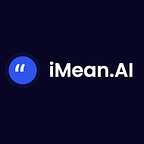Evaluating AI Web Agents: Insights from the WebCanvas Benchmark
In the fast-paced world of artificial intelligence, evaluating the efficacy of AI web agents is crucial. Thanks to the comprehensive WebCanvas Benchmark, which incorporates a robust Mind2Web-Live data set of 542 live web tasks and 2,439 intermediate evaluation states, we’ve gleaned some insightful data on the performance of popular AI models. Here’s what you need to know:
Leading the Pack: GPT-4 and Its Variants
At the top of our list is OpenAI’s GPT-4, which continues to dominate with a task completion rate of 48.8% on the Mind2Web-Live test set, particularly the GPT-4–0125-preview variant. This model not only demonstrates superior efficiency but also showcases its robustness in handling diverse web tasks.
Hot on its heels are Claude-3-Sonnet (as of June 20, 2024) and GPT-4o (from May 13, 2024). Both models exhibit performances nearly on par with GPT-4, signifying a tightening race among top-tier AI agents.
Surprises in Open-Source Models
An interesting development is the performance leap of open-source models, which are now outpacing GPT-3.5-turbo and Claude-3-Opus in tasks that require more active decision-making and interaction (referred to as “agentic tasks”). This shift indicates a significant improvement in the capabilities of freely accessible AI technologies.
Challenges and Limitations
Despite the progress, some models like Gemini-1.5-Pro couldn’t be tested due to rate limits, and the earlier Gemini-Pro model didn’t lead the performance metrics as expected. This highlights ongoing challenges in scalability and access in real-time testing environments.
Key Insights on Model Adaptation and Performance
From our additional findings, we observed that models fine-tuned on static datasets from a year ago struggle to adapt to current online environments. This calls into question the long-term viability of static training datasets in a rapidly evolving digital landscape.
Furthermore, adding a self-reward module didn’t enhance agent performance in these live web environments. However, when using human-labeled rewards as a benchmark for self-improvement, agents showed noticeable improvement. This suggests that human feedback remains a critical component in training effective AI agents.
Interestingly, the performance of lesser-capable models like GPT-3.5 and Mistral-8x22B did not see any significant benefit from memory enhancements or sophisticated reasoning architectures like REACT when deployed in online tasks.
Domain and Infrastructure Influence
Agent performance varied significantly across different domains and websites, pointing to the need for more targeted research into specific areas and tasks. We also discovered that the physical IP of the browser device can significantly influence performance outcomes. To address these discrepancies, we plan to release a cloud version of our benchmark, ensuring more uniform testing conditions.
Looking Forward
The insights from the WebCanvas Benchmark not only underscore the rapid advancements in AI technology but also highlight the complexities involved in creating universally efficient and adaptable web agents. As we continue to push the boundaries of what these AI systems can achieve, these evaluations will be pivotal in guiding future developments and ensuring that AI technologies can meet the diverse needs of users across the globe.
Stay tuned for more updates as we dive deeper into the nuances of AI performance and strive for new breakthroughs in AI technology!
For more information and to contribute:
